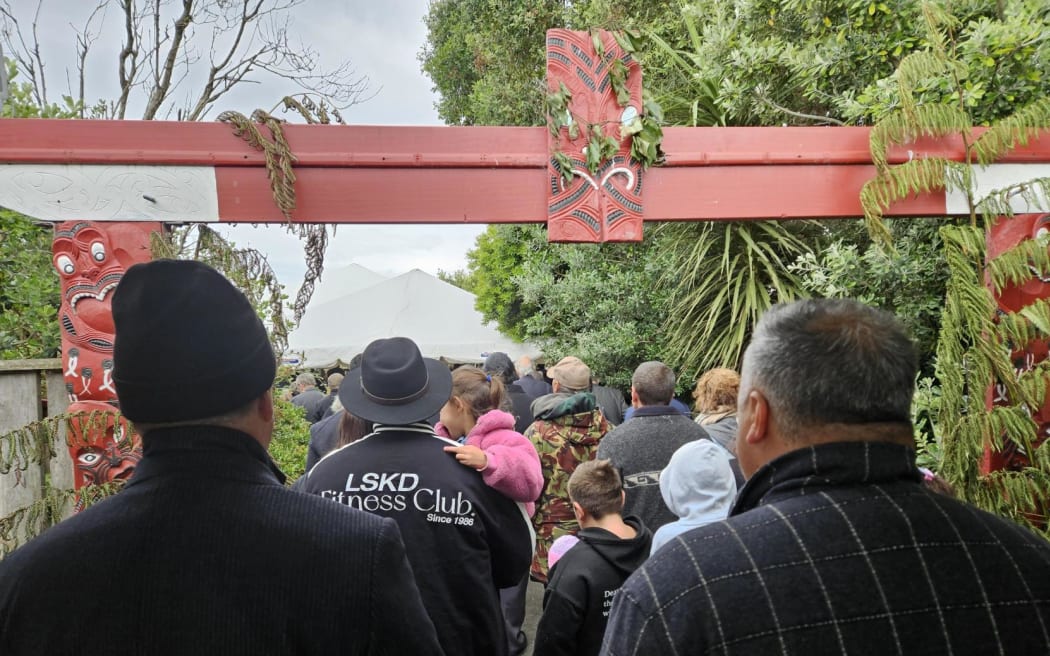
Dame Tariana died on Friday, aged 80, after earlier suffering a stroke.
Thousands have arrived in the small settlement south of Whanganui over the last four days to pay their respects.
The nehu, or burial, began about 11am.
Wilson said the whānau were encouraging people to stay behind after the nehu for the hākari, or feast, which usually signalled the end of a tangihanga.
He said the village of Whangaehu may be small, but the entire Māori community on both sides of the Whanganui river had come together to farewell one of their own.
"You can't be from one side of a river and not from the other side of a river, or connected to the many rivers along here, so ... as a wider rohe (region) we're supporting each other to ensure we can do the things we need to do to honour our Queen."
Colleague and close friend Sir Bill English told Morning Report the Māori health provider movement and Whanau Ora would be Dame Tariana's lasting legacy.
"In Whanganui, she started one of the early Māori providers...and it was all based on a view that government services weren't designed around people.
"She set about doing a bit more than just talking about it, she started essentially the movement of Māori health providers and Whanau Ora."
Sir Bill said Dame Tariana had a deep faith in the capacity of people to know what was best for them which allowed for progress if you gave them a little room to do it.
He also said she was quite sceptical about the structures and delivery of the welfare state.
Dame Tariana resigned from the Labour Party in 2004, before forming Māori Party, which Sir Bill said took immense courage to do.
"Willie Jackson noted this yesterday at the tangi, it takes a great deal of courage to break - particularly with a government - and form your own party because there's so much uncertainty about whether it will work or won't work," he said.
"Secondly, in her case, along with Pita Sharples, who was there yesterday, she focused very much on the mana-enhancing way of doing politics."
Sir Bill said under Dame Tariana's leadership, the Māori Party focused very much on a style of politics which he believed people would find irrelevant today because of factors like social media.
He credited Māori Party at the time for their research, constructive and well-thought-through speeches in the House, and conducting themselves with mana, which he said was very effective.
"Within a few years of leaving the Labour Party, she was part of a government, and able to conduct the Māori Party's relationship in a government with quite a lot of tension, but always with integrity and that coalition lasted nine years and allowed her to persist with ideas like Whanau Ora and a lot of unrecognised work she did within the disability community as well."














